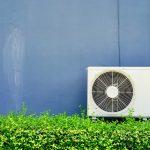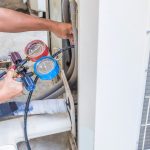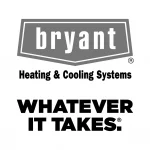High Capacity Range Hood – Is your home ready for it?
Dealing with a High-Capacity Range Hood
Makeup air for a range hood:
As indoor barbecue rises in popularity and the cooking ranges get bigger, the demand of these behemoth units is also on the rise. Not just to expel the offensive odors but also to keep the air quality at a healthy level.
Many states require that houses with high-power exhaust fans include equipment to supply makeup air, to ensure that the exhaust fan doesn’t depressurize the house. This is the dilemma that many people face when designing a home or even retro fitting one of these units in a home.
So why the dilemma?
Most homes have several exhaust appliances that expel air at a certain speed – ratings are based on a flow of cubic feet per minute or CFM. These typically include a bathroom fan (40-200 CFM), a clothes dryer (100-225 CFM), and perhaps a power-vented water heater (50 CFM), a wood fireplace or wood-burning stove (30-50 CFM), or an integrated vacuum cleaning system (100-200 CFM). But the most powerful exhaust appliance in most homes is the kitchen range hood fan (100-1,200 CFM).
Any exhaust fan removing air from your house requires replacement with an equal amount to enter from the outside. Air that penetrates gaps in a home’s envelope to replace exhausted air is called “make-up air.” Two trends affecting makeup air are causing increasing problems for new appliance or home owners: homes are getting tighter and hood fans are getting much more powerful.
So where does a powerful range hood fan get its makeup air? If the house doesn’t have enough random air gaps around doors and windows or sillboxes, the make-up air will choose a path of least resistance and often pull air backwards through water heater flues, bath fans, or chimneys — a phenomenon called back drafting. Since the flue gases of some combustion appliances can include carbon monoxide, back drafting is dangerous.
Turn Up The Heat
As these appliances continue to grow in size, our Northern climate has an additional requirement to consider – heating make-up air. The threat of back drafting is very real, yet once make-up air is considered, many people overlook the impact that replacement air has on conditioned air requirements. Anytime air is replaced inside a home with outside air, that air must be conditioned by heating in the winter or cooling in the summer. This can be an undue burden on a heating or cooling system. For example, a 2,000 square foot house with a 750 CFM fan running for 1 hour would change the air 3 times in the home. That’s a lot of make-up air to condition.
Aware of this issue, many air exchangers are now being fit with heating coils in an effort to reduce heating loads in cooler months. Because so many homes are tighter than they used to be, we are increasingly relying less on window leaks and more on air-to-air exchangers for make-up air.
It’s Better To Make-up Than Be Sorry
When installing a range hood in a new home or retrofitting or installing a new in an existing home, at Pharo Heating, we take make-up air seriously and we will make suggestions to ensure the hood is not only exhausting properly, but also getting your home the fresh air that it needs.
About the Authors:
Clint Pharo is a local HVAC Contractor in Madison, WI. He and his team of HVAC professionals at Pharo Heating & Cooling cover a broad range of services in commercial buildings, new home construction, and residential homes and locally represent Bryant Heating and Cooling Products. He regularly posts on his company’s blog at www.PharoHeating.com.
Ben Lindberg is partner in a marketing and design house in Madison, WI called Lion Tree Group. He regularly blogs at the Bark and Roar blog at www.LionTreeGroup.com.










